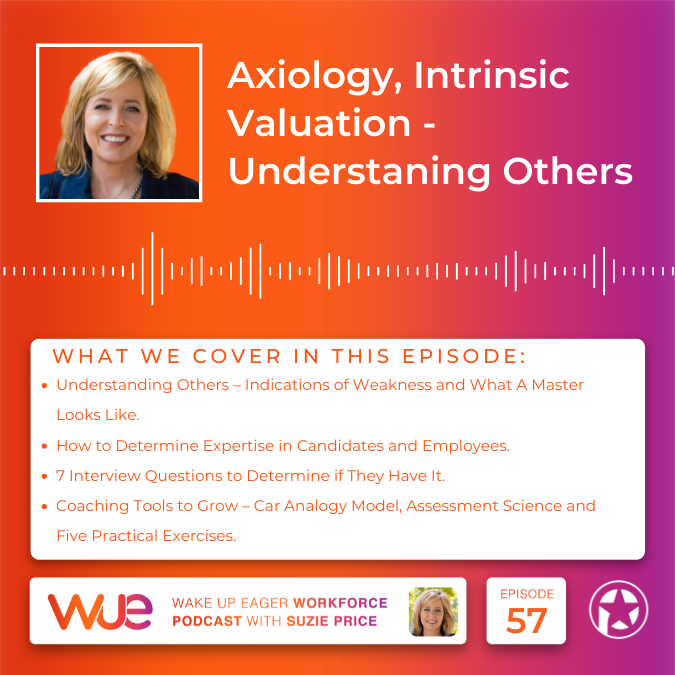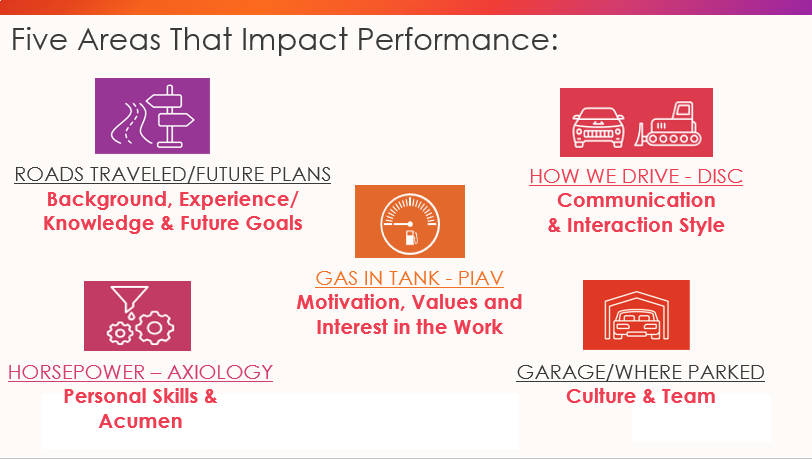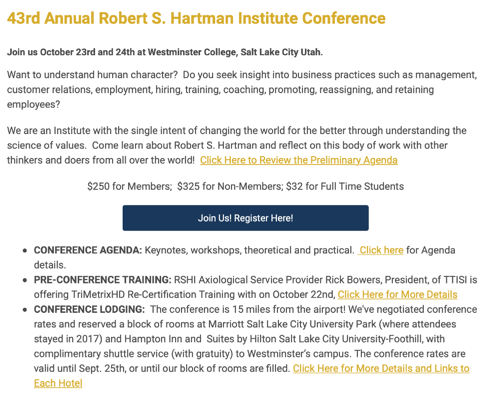The Know How You Need & the Tools to Get You There... Get Certified >

Podcast Episode #57:
Understanding Others

Overview of Episode #57 ---
- Understanding Others – Indications of Weakness and What A Master Looks Like.
- How to Determine Expertise in Candidates and Employees.
- 7 Interview Questions to Determine if They Have It.
- Coaching Tools to Grow – Car Analogy Model, Assessment Science and Five Practical Exercises.
Timing on Recording: @ 10:47 ---
Topic 1: What It Means to Understand Others.
- Having the capacity to perceive and understand the feelings, attitudes, and individuality of others.
- Robert Hartman - Intrinsically valuing other.
- What transactional relationships are.
- “I'll forget what you said or forget what you did, but I'll never forget how you made me feel.” Maya Angelou
Timing on Recording: @ 16:07 ---
Topic 2: How to Know if You Are Someone Who Has Master Skills Associated with Understanding and Evaluating Others.
- TriMetrix Assessment.
- Feedback from others.
- 360 feedback.
Timing on Recording: @ 18:15 ---
Topic 3: Interview Questions if Someone Scores Low on Understanding Others.
- Describe ways you are able to show others you care about them, yet do not compromise the needs and requirements of the overall organization.
- If we were to talk to past clients and past managers, how would they describe your listening skills? Would your past clients describe you as a good listener? What specific examples can you provide that demonstrate this?
- What do you do to understand a client or prospect’s or employee's behavior, motivations and feelings?
Timing on Recording: @ 20:15 ---
Topic 4: Development Tools to Better Understand a Person and Perceive and Understand Who They Are as an Individual.
- Car Analogy:
- Roads traveled, current location and future destination.
- Under the hood; horsepower.
- Gas in tank.
- How you like to drive.
- Where you are parked.
- Job dashboard.
- Triad.
- Side-by-side report.
- Examples of how the model can help you understand people and their individuality and where their strengths are, where their development opportunities are, where you might want to focus to help them the most and how you can use the car analogy model to value and see the full person.

Timing on Recording: @ 44:31 ---
Topic 5: Coaching Actions that You Can Take.
- Focus on investigating another person’s perspective.
- Ask open-ended questions.
- Practice listening.
- Make a commitment to improve.
- Take time to have informal chats with people.
- Don’t talk about yourself.
- Show genuine interest and be present.
- Practice the simple things, “Please and thank you,” every time you ask somebody to do something.
- Give a public thank you to someone who has helped you.·
- Do a better job of valuing people.
- Create a list of the people you work with, then create a little table and then evaluate your relationship on a scale of 1-5, what's the best, what's the worst? Set some goals with these people.
- Feed forward tool.
Seven Interview Questions to Determine if They Have "It"
- Give me an example of when you identified with someone else's difficulties at work. What, if anything, did you do to help them?
- Give me an example of when you went out of your way to help someone. What were your thoughts and feelings about that situation?
- Describe ways you are able to show others you care about them, yet do not compromise the needs and requirements of the overall organization.
- If we were to talk to past clients and past managers, how would they describe your listening skills? Would your past clients describe you as a good listener? What specific examples can you provide that demonstrate this?
- Describe a time when you had to deliver difficult news to a client. What did you say? How did the client react? What was the outcome?
- Describe a difficult client situation – a client who seemed to always complain and have problems. How did you handle the situation? What did specifically did you do? What was the outcome?
- What do you do to understand a client or prospects or employee’s behavior, motivations and feelings?

Hartman Conference Link: https://www.hartmaninstitute.org/2019-annual-conference
PRICELESS RESOURCES
PODCAST: Subscribe to our Podcast or Help Us and Leave a Review
NEWSLETTER: Sign up for Monthly Email Updates
PODCAST: Most Recent Episodes Directory of All Episodes
RELATED DEVELOPMENT SERVICES:
· Certification: Become the Expert: Assessment Certification Training
· Hiring: Hiring: Secret to Superior Performance
· Surveys: 360 Feedback and Organizational Surveys
· Complimentary Consulting Call or Send Us Feedback: Contact Suzie





